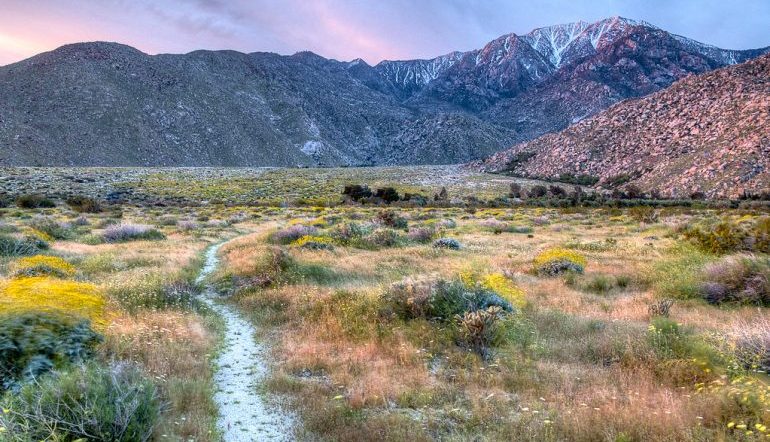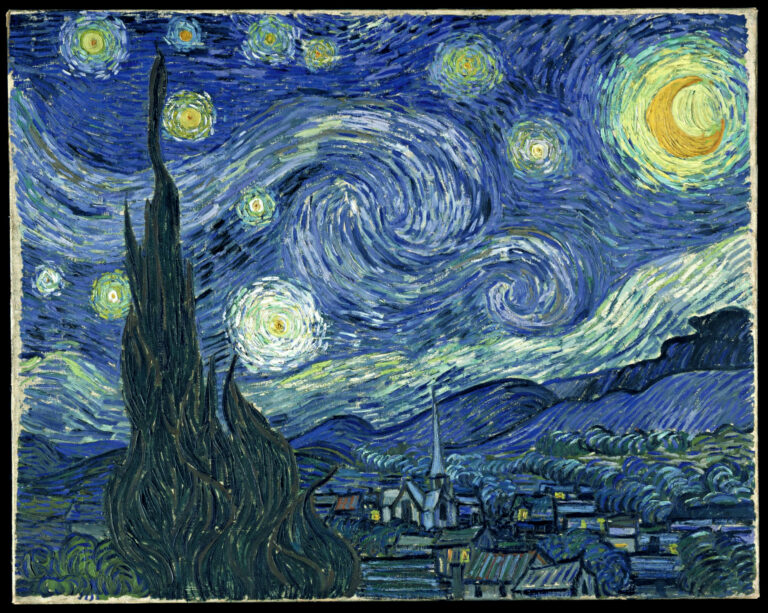The Dark Side of the Wild

Several years ago, I found myself among those assembled to hear Gary Snyder weave questions of nature, the natural world, the wilderness, and the wild with poetry. Of all things Snyder said that evening, one of the most memorable was, in fact, the simplest. As he mulled over the idea of “wild” and the word’s various meanings in our wonderfully versatile English language, he also offered the Chinese definition of the term—in his translation, “self-maintaining.” A wild plant or animal, in other words, knows how to take care of itself.
This appears to be an excellent way to think about the concept of “wild,” until you realize that the longer you look at the definition, the more it begins to shift under the gaze. Is this sense of self-maintenance not also a mark of the way the individual exists within the contexts of various social systems? The “wild” creature also exists within the ecological systems of which it is a part. So how are these two ideas to be reconciled?
Perhaps they don’t need to be but instead may coexist. It is not as important to pin down these terms in any philosophical sense as it is to see how “wild” (it is ultimately a subversive term) manifests itself in the lives, and ways of living, that contemporary America remains both fascinated by and deeply ambivalent about.
I have in mind two popular nonfiction works published within the last several decades: Into the Wild by John Krakauer and Wild by Cheryl Strayed. Both were made into films with high-profile casts and directors. But why? Perhaps the fascination and ambivalence has something to do with the, what—instinct? impulse?—that entering the wild is the very thing that can make one fit for company when, or if, one emerges from it. This is an old American story. Recall the opening of Moby Dick, when Ishmael confides:
Whenever I find myself growing grim about the mouth; whenever it is a damp, drizzly November in my soul; whenever I find myself involuntarily pausing before coffin warehouses, and bringing up the rear of every funeral I meet; and especially whenever my hypos get such an upper hand of me, that it requires a strong moral principle to prevent me from deliberately stepping into the street, and methodically knocking people’s hats off—then, I account it high time to get to sea as soon as I can. This is my substitute for pistol and ball. With a philosophical flourish Cato throws himself upon his sword; I quietly take to the ship.
This vision of escaping to the wild has a darkness powerful enough to rival Emerson’s—and, to great extent, Thoreau’s—visions of the natural world as a self-regulating and ultimately salutary place. For Ishmael, this is no entering into the wild (the sea is perhaps the ultimate manifestation of the wild) for a vacation, to be entertained, or even to enjoy himself—it is a place he enters as the next alternative to suicide.
Strayed was not far from these thoughts when she commenced on the Pacific Crest Trail; many would say the same of McCandless once he made it to Alaska. To reach this frame of mind requires a certain defiance of moral control as exerted upon the individual by the culture itself.
Even a superficial glance at McCandless’ life shows his resistance to the American social order. Upon graduating from Emory University, he walked away from what was to him a profane litany of modern American materialism: he refused to accept a new car for a graduation present, pursued no career, gave his savings away to charity, hitchhiked across the United States under an assumed name, had little apparent interest in sex, befriended people from all walks of life, and so on.
In 1995, three years after McCandless’ death in the Alaskan wilds, in the wake of her own mother’s death, Strayed left behind the city, a dissolving family and marriage, heroin addiction, and all familiar company to walk by herself into the wilderness. That these two searchers shared a sense that all is not right with themselves or with the world is not in itself out of the ordinary. But less common are the ways they went about attempting to reconcile themselves with this feeling—confronting it by stepping away from it altogether.
Defiance of the social code need not be gloomy—indeed, in McCandless’ case, the “advice” he would give his friends was optimistic and upbeat and shows the extent to which he lived this defiance and encouraged it in others. In a letter to his friend and surrogate grandfather, who is referred to by pseudonym Ron Franz, with unaffected candor he exhorts the octogenarian:
I think you really should make a radical change in your lifestyle and begin to boldly do things which you may previously never have thought of doing, or been too hesitant to attempt. So many people live within unhappy circumstances and yet will not take the initiative to change their situation because they are conditioned to a life of security, conformity, and conservativism, all of which may appear to give one peace of mind, but in reality nothing is more damaging to the adventurous spirit within a man than a secure future.
Whether intentional or no, the Emersonian tone deepens as McCandless goes on to say in the letter, “You are wrong if you think Joy emanates only or principally from human relationships. God has placed it all around us. It is in everything and anything we might experience. We just have to have the courage to turn against our habitual lifestyle and engage in unconventional living.” These thoughts are also well in line with a certain moral absolutism that rejects anything that does not rise to its standards—which happens to include virtually all aspects of his family’s life and American popular culture as a whole.
Strayed’s defiance of moral control manifests itself in many forms that don’t exactly have the same Emerson-like purity about them: whereas abstinence defined McCandless’s life in many ways, Strayed broke through moral boundaries by plunging herself into a grim hedonism. The vows of marriage? Transgressed. The possibility of death by heroin? Indulged. The gendered expectations for sexual expression? Flouted. None of these actions are new, of course. But the fact that she uprooted her life and transplanted it in that fragile condition into the wilds of the Southern California desert to hike a trail alone, with no backpacking experience, for an indefinite span of time shows that Cheryl certainly effected a “radical change in lifestyle,” to borrow McCandless’ words.
While she tells us her story with a self-deprecating humor that is almost totally absent from the journal entries we have from McCandless, the center of the geography is loss. “I would suffer. I would suffer,” she writes, “I would want things to be different than they were. The wanting was a wilderness and I had to find my own way out of the woods…I didn’t know where I was going until I got there.” Her identification of desire with the idea of wilderness and the purposeful purposelessness of the journey is further embodied as she describes her impression of the Sierras: “I realized I didn’t understand what a mountain was…They were layered and complex, inexplicable and analogous to nothing.” She repeats the same observation about the desert and concludes, “My new existence was beyond analogy, I realized…I was in entirely new terrain.” By placing herself in a terrain that demands self-reliance on the most primary level, she begins to see that the landscape unfolding before her with excruciating slowness reveals a many-contoured geography of loss.
I should pause here to ask whether it is objectionable—merely narcissistic or self-aggrandizing—to project or, as some would say, anthropomorphize the natural landscape or wilderness in this way. Perhaps not, if it causes a psychic or spiritual transformation. For both Strayed and McCandless, it was necessary to enact this transformation in name as well as in deed. Chris McCandless became Alexander Supertramp; Cheryl (she provides neither her maiden nor her married names) becomes Cheryl Strayed. Among the meanings of “Strayed,” she tells us, is “to be lost, to become wild.” Alexander Supertramp, an over-the-top clashing of high and low, needs no further remark. These are secular, individualized versions one might link to the formal religious custom of a nun changing her name that marks her passing from earthly to spiritual relations.
Both McCandless and Strayed are repeatedly referred to in transformational terms. Chris-as-Alexander creates from the landscape he traverses an unfolding narrative of his life—a life told in the third person. His canoeing adventure in Mexico echoes Cheryl’s account of the mountains in the ways geography becomes entangled with identity: when confronted with a maze of canals in his effort to reach the Gulf of California, Chris (Alex) becomes lost: he says, “Alex resumes quest for an opening to the sea, but only becomes more confused, traveling in circles…But then by fantastic chance he comes upon Mexican duck hunting guides who can speak English. He tells them his story and his quest for the sea. They say there is no outlet to the sea.” This sequence becomes emblematic of McCandless’ sojourn: here again the elusive landscape maps out the desire and the searching of the individual moving through the wilderness, and makes plain the ever-present possibility that one might not return from it.
To do most of the things that McCandless and Strayed accomplished requires, no doubt, a temperament strong enough to defy moral control and a great deal of self will. But what happens when one is pointed not toward “natural” processes, in the Stoic sense of carrying out one’s life in accordance with the will of nature, but aims to supersede them, even if this leads to self-destruction? Consider the close associations between a forest—known in German as Wald—and a wood, and the Middle English linking of “wood” with madness. Of our two sojourners, we know that one returned from the wilderness and one did not. What is the difference?
If we start with the one who does return, Strayed, we need not look far for the impulse for self-destruction that is frequently intertwined with other acts of defiance of commonly accepted American codes of morality. Further, courting extreme forms of solitude always brings with it the possibility of the dangerous encounter. Her story is, however, typical in that often the people you meet in the backcountry are congenial, eager to swap stories and supplies. Though she was frightened by a bull and experienced an episode with dehydration in the desert heat, she had a map, planned places to stop for books and supplies. Though the trail thrust both celibacy and sobriety upon her, she took breaks, went to town, and enjoyed alcohol and men. But the direction was, more or less, established by the Pacific Crest Trail. It is not possible, nor even desirable, to try to pinpoint with exactness what happened during Cheryl’s long and intimate exploration of this geography that enabled her avoidance of self-destruction and which allowed her exit from the wild and re-entry into civilization. Doubtless it was not one moment but an accumulation of experiences, told with the advantage and distance of the present self that has survived and reflects on the geography traversed.
McCandless’s situation is more ambiguous, not only for the fact that his story is told to us through someone else’s viewpoint, though utilizing his own accounts from letters, journals, and marginalia. Krakauer and others after him (including the obsessive websites devoted to McCandless’ memory) have probed competing theories about McCandless’ motivations as well as his mental condition to explain the questionable conditions surrounding his starvation and death in the Alaskan bush when several alternative outcomes were possible. I think Krakauer is right to object to efforts to reduce McCandless’ “strange spiritual quest to a list of pat psychological disorders.” But the question remains—what did he expect to happen once he entered the Alaskan wild? Perhaps he wished to arrive in a place where everything is simply what it is, even if that leads to his courting and engaging in the Totentanz, or dance of death, with the wild to which there is only one end. To deepen the mystery, we have McCandless’ own words written at the end of his life.
His comments in the margins of his books, including Tolstoy’s “Family Happiness” and Pasternak’s Doctor Zhivago, are most telling—in them, McCandless is noticing a certain theme that on first consideration seems at odds with his self-willed state of solitude, yet it sounds out naturally in the prophetic register. From Tolstoy, he marks the passage, “the only certain happiness in life is to live for others.” Similarly, from Pasternak’s line that “an unshared happiness is not happiness,” McCandless responds with emphasis, “HAPPINESS ONLY REAL WHEN SHARED.” Cheryl Strayed in her way affirms this idea by leaving the trail and returning to the city, remarrying and having children and carrying on with her life. Solitude is, inevitably, met in one form or another again with company.
Finally, while Strayed’s and McCandless’ pilgrimages part ways in a place that separates survival from death, civilization from wildness, we find that, strangely, in the wild these states exist in a geography of fluid boundaries. Consider Ishmael who, at the end of Moby Dick, finds himself the sole survivor whirling around the center of the black vortex that marks the sinking of the Pequod. With Melville’s inimitable shade of humor, up from that center shoots the harpooner Queequeg’s unused coffin. “Buoyed up by that coffin,” Ishmael tells us, “for almost one whole day and night, I floated on a soft and dirge-like main. The unharming sharks, they glided by as if with padlocks on their mouths; the savage sea-hawks sailed with sheathed beaks. On the second day, a sail drew near, nearer, and picked me up at last. It was the devious-cruising Rachel, that in her retracing search after her missing children, only found another orphan.”


